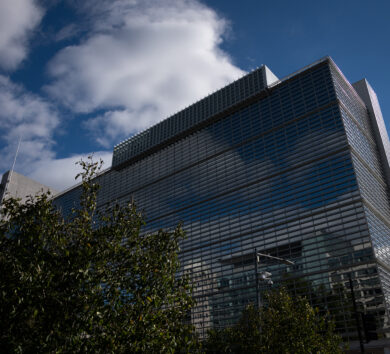

With the Intergovernmental Panel on Climate Change (IPCC) calling for “immediate, rapid, and large-scale” changes to limit warming, the search for climate solutions is more urgent than ever.
Fortunately, a new report shows that cleantech is gaining momentum in the United States.
The 2021 Cleantech Innovation Hubs Survey, from Colorado-based venture capital and research firm Saoradh Enterprise Partners (SEP), is the first ranking of cleantech innovation hubs in the US. SEP defines innovation hubs as functioning geographic ecosystems based on research funding, technology development, venture formation, and other metrics. The report ranks the 40 strongest cleantech ecosystems in the nation and characterises their strengths and weaknesses.
Ahead of the milestone COP26 later this month, SEP aims to provide investors, corporations, policymakers, and other stakeholders with a mission-critical roadmap for where to develop cleantech in the US.
Key insights from the report
- Climate solutions are emerging in unexpected places: Silicon Valley, Boston, and NYC, although crucial areas for innovation, are far from the only cleantech hubs. Places like Pittsburgh (#18), Salt Lake City (#27), Atlanta (#10), Detroit (#15), Houston (#19), the New Mexico Corridor (#23), and Phoenix (#22) have growing ecosystems.
- Emerging hubs are being overlooked: Investors still have a narrow focus on California, Massachusetts, and New York. Across the United States, 75 per cent of cleantech venture capital funding is invested in those three states. At the same time, 74 per cent of innovation funding goes to the other 47.
- This resource gap is putting cleantech in jeopardy: When it comes to climate change, potential solutions can’t go ignored. The split between innovation funding (for research and tech development) and invested resources means cleantech innovation is happening in emerging hubs without the crucial investment stage that brings this tech to market.
“Our goal is to illuminate innovation happening across the country,” said Paul Nelson, Managing Partner of SEP. “Over the years, we’ve seen cleantech flourish in our own backyard – what we call the Colorado Clean Range – but it’s been under the radar for much of the cleantech community. That experience has motivated us to shed light on other places where innovation is being overlooked.”
SEP’s data shows that there’s a resource gap leaving cleantech innovations with a limited runway to succeed. “With something as urgent as climate change, that’s a stunning oversight. We must optimise where resources are going,” said Nelson. “If investors and other stakeholders pay attention, we’ll be positioned to identify and commercialize untapped tech and direct the resources needed to build a sustainable future.”
Top 10 Cleantech Innovation Hubs
- The Bay Area
- Boston
- New York
- Los Angeles
- The Colorado Clean Range
- Washington D.C.
- Chicagoland
- Seattle
- San Diego
- Atlanta

“The Innovation Hub Survey serves as a valuable tool to enable the tracking of innovation and entrepreneurship across the United States. Understanding our current landscape and its gaps will help us inclusively expand and engage with new innovators, which will aid in sustaining our clean energy future,” said Kimberlee Ott, Network Innovation Manager at the National Renewable Energy Laboratory.
“Investing in cleantech innovation, ideas, products, and technologies to help us live sustainably is an essential part of addressing climate change. The SEP 2021 Cleantech Innovation Hubs Survey is a great tool to help map the potential for stronger cleantech ecosystems across the US and highlights regions where today’s investments can build the industries of tomorrow,” said Elena Crete, Head of the Climate & Energy Program at the United Nations’ Sustainable Development Solutions Network.
The whitepaper summary of the Hubs Survey, with the complete list of the top 40 hubs, can be found at www.saoradh.com/hubs.






Comments